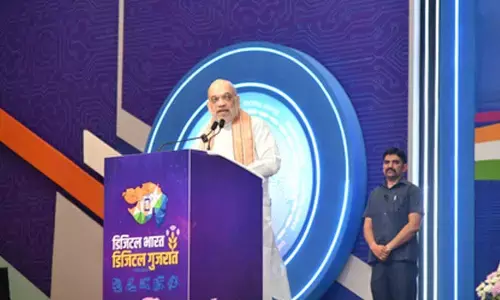Osteoarthritis not a disease of the old anymore

Knee pain is the most common complaint we see in every household. Of the many reasons for knee pain, osteoarthritis is the most common one, which is basically wear and tear of the joint. What wears and tears is the protective cartilage layer which covers the two bone ends in the joints.
Knee pain is the most common complaint we see in every household. Of the many reasons for knee pain, osteoarthritis is the most common one, which is basically wear and tear of the joint. What wears and tears is the protective cartilage layer which covers the two bone ends in the joints.
Although Osteoarthritis is classically a disease of middle and elderly aged population, we are now coming across many younger patients who are presenting with knee pains and surprisingly being diagnosed as having the condition.
It is still not clear why, but most likely it’s attributed to genetic changes, obesity, changing lifestyles, sedentary jobs, lack of exercise and probably role of calcium and vitamin D deficiency too. Women are more commonly affected than men, due to genetic factors and also hormonal factors.
The most common symptom is pain. It starts initially as morning pain or following exertion like prolonged standing, walking, stairs, etc. As the disease progresses the duration and intensity of pain increases. Pain compels then patient to resort to measures like taking rest, stopping their regular activities, and taking pain killer drugs.
The other symptom is swelling, which can occur by the inflammatory response of Osteoarthritis, causing fluid accumulation and by wear and tear process. Deformity is seen as a late onset symptom of progressive osteoarthritis. Patients with severe arthritis find it extremely difficult to walk and manage activities of daily living.
Treatment depends on the severity of arthritis and the age of the patient. In young patients and early arthritis, conservative treatment is adviced. In severe arthritis, surgical treatment is adviced. However lifestyle modification in the form of weight reduction, healthy diet, regular exercises is adviced by doctor/physiotherapist.
When someone exercises and strengthens the muscles around the knee, the load on weight bearing is borne by muscles partly and hence the joint is partly spared. Also, exercises help in relieving stiffness around the joint and improve mobility. Needless to say, weight reduction reduces the load over the knees and hence decreases pain and progression of arthritis. Avoiding stairs and squatting relieves the pain and also decreases the stress over the knee joint.
Various types of medications and supplements are being used across the globe for the possibility of regenerating the cartilage and slowing down the progression of arthritis. Surgery in the form of Joint replacement surgery (Arthroplasty) is adviced by the specialist doctor only when conservative treatment fails and the arthritis is of severe degree.
FAQs: Knee Replacement surgery
When should I get knee replacement surgery?
When knee pain is severe, so bad that you have to take regular pain killers and the pain is limiting you from activities of daily living. When the deformity around the knee is progressing and altering the way you walk
Can I get operated if I have Diabetes and BP?
Yes, as per the advice of your doctor.
Is there a maximum age limit for getting knee replacement surgery done?
There is no age limit for the surgery. But, the patient should be medically fit for the surgery, which will be checked by your doctor appropriately.
Are all the knee replacement surgeries the same?
There are different types of replacement surgeries and various types of artificial implants being used for the surgeries, which will be discussed by your surgeon
How fast can I get up and about after surgery?
You will be mobilised immediately after surgery. The maximum number of hospital days being 4 to 5 days currently.
Can I climb stairs after surgery?
You can certainly climb stairs and do other daily activities including as adviced by your surgeon and physiotherapist.
How painful is the post surgery period?
With the newer pain management modalities, the post-operative pain is considerably low after knee replacement surgeries. (The writer is Orthopaedic & Joint Replacement Surgeon, Aayush Hospital.)
By Dr Suman Pendyala









